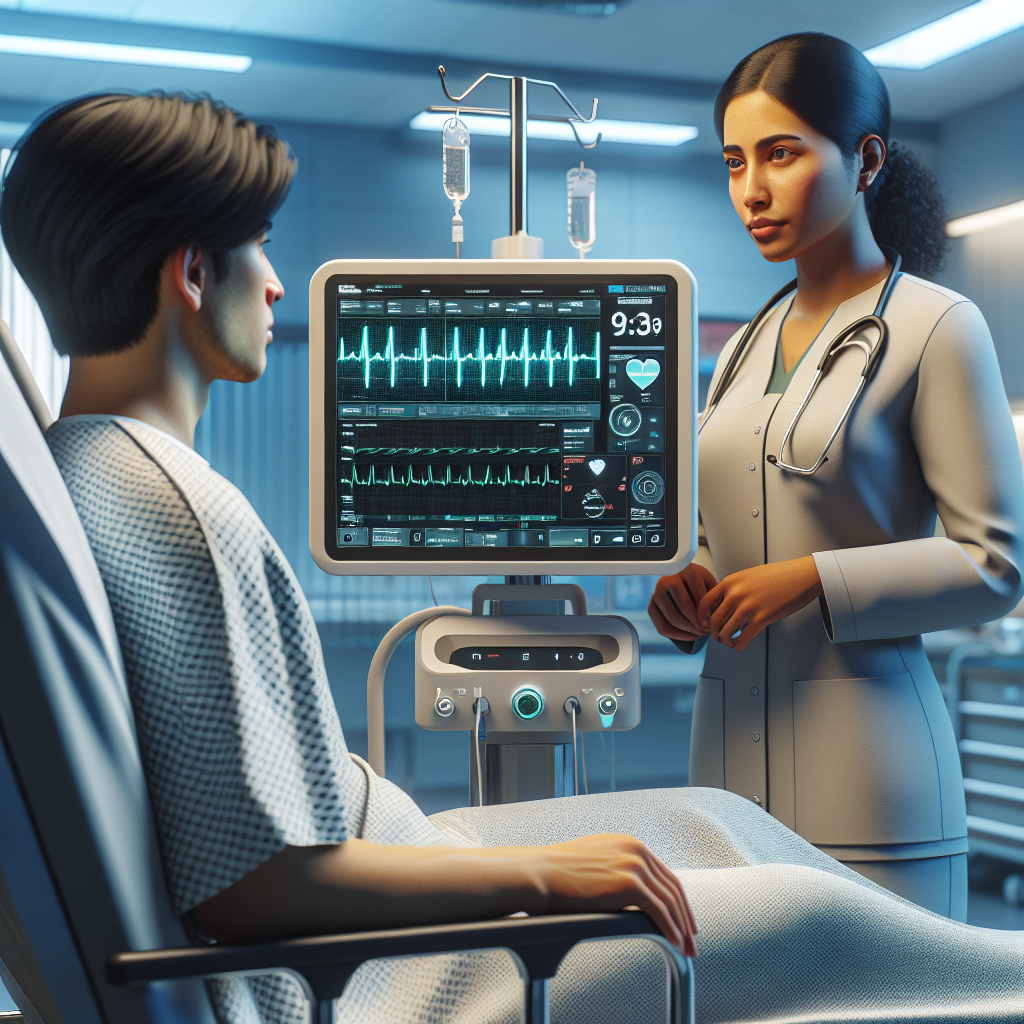AI Predicts Sudden Cardiac Arrest Days Before It Strikes
In an astonishing development in the field of medical technology, researchers have unveiled an artificial intelligence (AI) system capable of predicting sudden cardiac arrest (SCA) several days before it occurs. This groundbreaking innovation could revolutionize how we approach heart health and emergency medicine, potentially saving countless lives.
The Significance of Sudden Cardiac Arrest
Sudden cardiac arrest is a medical emergency that occurs when the heart unexpectedly stops beating. It can happen to anyone, regardless of age or health status, and often leads to death if not treated immediately. The statistics surrounding SCA are alarming:
– SCA is responsible for approximately 350,000 deaths each year in the United States alone.
– Without immediate intervention, such as CPR or the use of an automated external defibrillator (AED), the survival rate is critically low—around 10% to 20%.
These stark figures highlight the urgent need for effective early warning systems that can help identify individuals at risk of SCA.
How the AI System Works
The innovative AI technology developed by researchers utilizes advanced machine learning algorithms to analyze a variety of data points. Key components of the system include:
– Heart Rate Variability (HRV): The AI monitors HRV, which measures the time interval between heartbeats. Significant changes in HRV can indicate underlying cardiac issues.
– Electrocardiograms (ECGs): The system analyzes ECG data, which reflects the heart’s electrical activity. Abnormal patterns may suggest an increased risk of cardiac arrest.
– Patient Health Records: The AI integrates data from electronic health records, including patient history, existing medical conditions, and medication usage.
– Real-time Monitoring: Utilizing wearable technology, the system provides real-time monitoring of vital signs, allowing for continuous assessment of an individual’s heart health.
Through these methods, the AI can predict potential cardiac events, providing a critical window for preventative action.
The Breakthrough Research
The research team, comprising experts from leading medical institutions, conducted a study involving thousands of participants over an extended period. They trained the AI system on diverse datasets, enhancing its accuracy and reliability.
One of the study’s key findings indicated that the AI could predict SCA with a remarkable degree of precision:
– Predictions were made up to seven days before an actual cardiac event occurred.
– The system achieved an accuracy rate exceeding 90% when validated against historical data.
These results underscore the potential of AI in detecting life-threatening conditions before they manifest.
Potential Applications and Benefits
The implications of this revolutionary AI technology are profound. Some potential applications and benefits include:
– Early Intervention: With timely alerts, healthcare providers can implement preventative measures to mitigate risks. This could involve adjusting medications, recommending lifestyle changes, or scheduling further evaluations.
– Enhanced Patient Monitoring: The integration of AI with wearable devices allows patients to be monitored continuously, providing peace of mind for both patients and their families.
– Data-Driven Insights: The AI system can help identify patterns and risk factors associated with SCA, contributing to a better understanding of heart health and encouraging further research.
– Cost-Effectiveness: By potentially reducing emergency room visits and hospitalizations due to preventable cardiac events, the AI could significantly lower healthcare costs.
Challenges to Implementation
Despite the promising advancements, several challenges must be addressed before widespread adoption of AI in predicting SCA can occur:
– Data Privacy and Security: Protecting patient data must be a priority, particularly when integrating AI with electronic health records.
– Clinical Validation: Further clinical trials will be needed to establish the AI’s efficacy across diverse populations and settings.
– Public Acceptance: Patients and healthcare professionals must be educated about the technology and its benefits to encourage its acceptance.
– Regulatory Hurdles: Navigating the complex regulatory landscape for medical devices and AI applications can be a significant barrier to implementation.
The Future of AI in Cardiology
As AI technology continues to evolve, its role in cardiology is expected to expand far beyond predicting SCA. Future advancements may include:
– Personalized Treatment Plans: AI could analyze individual patient data to create tailored treatment strategies, optimizing outcomes based on specific risk profiles.
– Integration with Telehealth: Remote monitoring systems could become common, enabling healthcare providers to manage patients’ cardiac health from the comfort of their homes.
– Predictive Analytics for Other Conditions: The same AI techniques could be adapted to predict other cardiovascular diseases, enhancing overall heart health management.
– Collaboration with Human Experts: AI will serve as a tool to augment, not replace, human expertise in cardiology. The combination of machine intelligence and clinical judgment can lead to superior patient care.
Conclusion
The development of an AI system that predicts sudden cardiac arrest days before it strikes marks a significant leap forward in cardiac health technology. By leveraging advanced algorithms and extensive data analysis, this innovation has the potential to save lives and transform emergency medicine. While challenges remain, the future of AI in cardiology looks promising, offering hope for a new era of proactive healthcare strategies. As we embrace these technological advancements, we move closer to a world where sudden cardiac arrest may no longer strike without warning.



